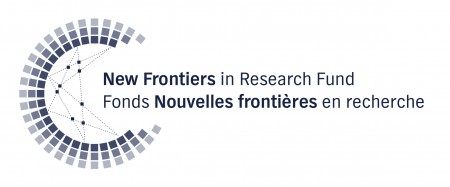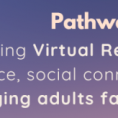
Leveraging Virtual Reality for cultivating compassion, resilience, social connectedness, and healthy habits in emerging adults facing chronic health challenges
About half of youths with chronic physical conditions develop anxiety and/or depression, causing significant distress and disruption within their lives over many years. This underscores their need for well-being tools– particularly ones that aid in navigating future adversities, setting young people up with the skills and abilities to flourish throughout life.
This project is engaging young people aged 16-30 years with lived experience of chronic, physical conditions with or without co-occurring mental health concerns. This project also engages community partners (service providers, clinicians, caregivers, allied health professionals, academics). Please connect with us if you are interested in joining the project team or collaborating with us!
Emerging adults — also known as Transitional age youth (TAY; age 16–30) — with chronic health conditions face significant psychosocial challenges during a formative developmental period, including coping with adversity, with anxiety and depression co-occurring in approximately half of this group. Many life events (e.g., major relocations, education or career transitions, medical diagnoses, caregiving responsibilities) create unique opportunities for growth, and also can cause adversity, especially during emerging adulthood– a dynamic time with increased risks to mental health. Yet, this life phase presents a remarkable opportunity to develop skills and habits that ripple throughout life towards enhanced well-being.
Interventions using contemplative and strengths-based adaptive skills approaches to positive functioning, such as developing coping and resilience abilities, are particularly effective for TAYs with chronic health conditions. However, accessing interventions and supportive environments can be challenging for these youths who require tailored tools that accommodate their lived realities. Unfortunately, many young individuals, particularly those without formal mental health diagnoses face a lack of accessible health and well-being services, often receiving support only in crisis situations. Virtual Reality interventions (VRIs) demonstrate potential for imbuing adaptive skills such as coping, mindfulness, and compassion towards well-being. Additionally, VR can provide authentic social connection at a time when supportive peer environments are vital and in-person interactions are often unfeasible.
Our aim is to develop a proof-of-concept Virtual Reality Intervention (VRI) that trains adaptive skills of coping, resilience, and compassionate abilities — and builds resilience towards adversity. Tailored for TAYs with chronic health conditions, we’ll integrate their lived experience in a co-design research process. Leveraging our research team’s ability to rapidly develop VR, we will amplify the VRI’s relevance using novel biosensors and AI within its interface. Through feasibility and acceptability testing and collaborator support, we will explore how to extend reach and accessibility of the VRI to TAYs through distribution points such as supported at-home use, and integrated in routine health services.
With our target end users, we believe a multi-component approach that embeds compassion, mindfulness, positive emotion, and peer support could be more effective than one of these as a single component alone. Multiple components may cater to varied needs and changing life circumstances routinely occurring within these end users’ lives, and ultimately towards personalized technological interventions.
A VRI can be a gateway for TAYs with chronic health conditions to access early intervention. Using VR could reduce stigma associated with seeking support, empowering TAYs to build skills for future challenges. This research is positioned to facilitate a paradigm shift in how these TAYs develop adaptive skills in a VRI, aiding them in real-world situations and future adversity. The outcomes of this work will provide insight into the potential of a VRI within early intervention, and outline design and implementation considerations specific to youth needs within a community context. Early and meaningful engagement of young people and community service providers/partners is central to these outcomes, and we warmly welcome collaborations to bring the project vision to life.
Our Process
Our transdisciplinary approach will ground lived experience of end users throughout the research process. This will also include community partner identified needs. Such insights will be integrated and synthesized alongside theory, methodologies, and design principles that have traditionally been isolated within the domains of cognitive science, psychology, neuroscience, health sciences, computer science, and VR design research.
In building upon our prior research on VR as a positive technology, we are embracing a Human-Centered Design (HCD) co-design process with this current project, with a research/co-design team of academics, designers, health care providers, mindfulness facilitators, and target end users within the community. Critically, we are using an equity lens within this co-design process to engage at-risk end users who are also traditionally underrepresented in research.
Publications and exhibits
Sorry, there’s no items to display.
Related Projects
Awedyssey: VR for promoting and enhancing well-being
SIRIUS — Virtual Earthgazing to mitigate effects of sensory isolation
Virtual Earthgazing — towards an overview effect in Virtual Reality
Support & Acknowledgement
![]()
The project “Pathways to flourishing: leveraging Virtual Reality for cultivating compassion, resilience, social connectedness, and healthy habits in emerging adults facing chronic health challenges” draws upon research supported by the Government of Canada’s New Frontiers in Research Fund (NFRF).





